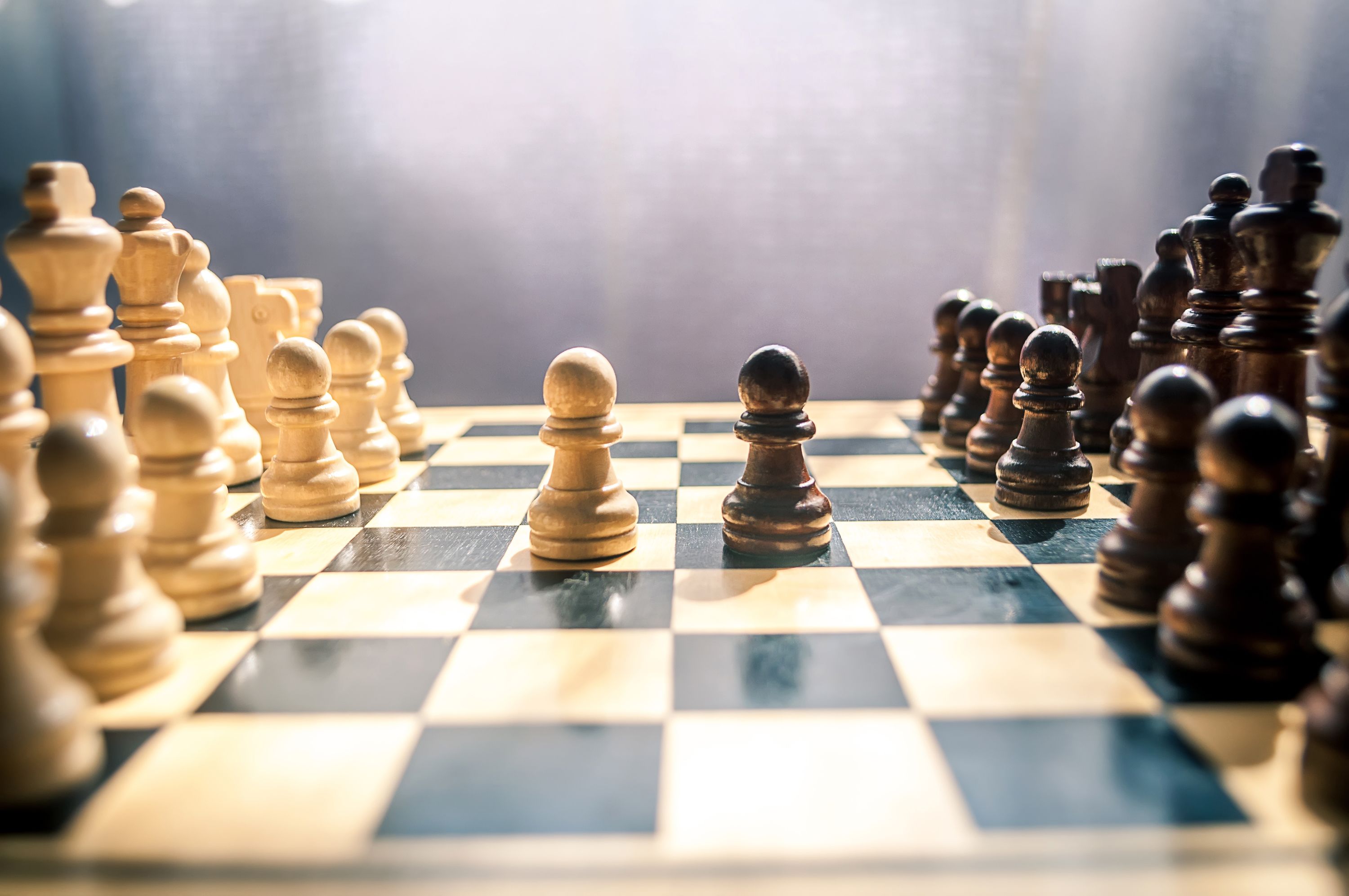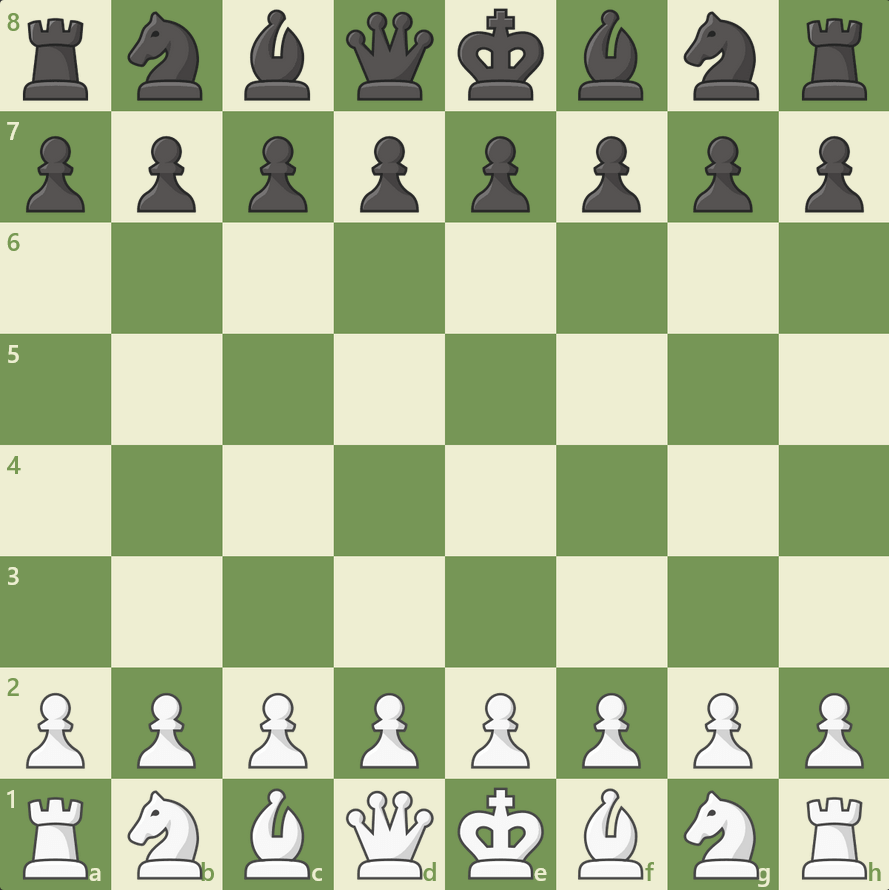How Chess Beginners Can Level Up Quickly
Wiki Article
Why You Need To Play Chess: The Benefits of Engaging in This Timeless Pundit Difficulty
Chess is greater than a basic game; it works as an extensive mental workout that sharpens numerous cognitive skills. Players participate in strategic reasoning and develop analytic abilities, which can have long-term benefits in day-to-day life. The discipline needed for improvement fosters perseverance and resilience. The true essence of chess lies not just in its intellectual demands however in the connections it cultivates within a community. Exploring these measurements discloses much concerning why chess remains ageless.Enhancing Cognitive Skills
Playing chess substantially boosts cognitive abilities, making it a useful task for people of every ages. The game needs tactical thinking and foresight, calling for gamers to expect their opponent's relocations while creating a winning technique. This mental exercise sharpens focus and concentration, important components of cognitive feature.
Additionally, chess motivates creative thinking, triggering gamers to check out cutting-edge techniques and non-traditional methods to the game. As they navigate the chessboard, individuals establish persistence and resilience, vital attributes for cognitive growth. Overall, the multifaceted cognitive advantages of chess make it an improving quest, promoting lifelong imagination and intellectual involvement.
Improving Problem-Solving Abilities
Many research studies have revealed that participating in chess can substantially boost analytical abilities. The video game requires players to examine complex placements and anticipate the opponent's moves, cultivating critical assuming skills. As they browse different scenarios, chess gamers create the capability to evaluate numerous outcomes and make tactical choices under pressure. This procedure improves their ability to strategy real-life troubles with a structured frame of mind.Chess promotes the identification of patterns and the application of rational thinking, skills that are vital in effective analytical. Players learn to evaluate threats and benefits, refining their judgment in unsure situations. The recurring nature of chess play reinforces these skills, permitting individuals to transfer their enhanced problem-solving capabilities to scholastic and expert contexts. Inevitably, chess offers as a useful device for any person looking for to develop their logical skills and enhance their general cognitive performance in difficult scenarios.
Growing Persistence and Discipline
While taking part in chess can be an interesting experience, it additionally requires a considerable level of persistence and self-control. Players need to find out to carefully consider each step, evaluating possible end results and approaches. This thoughtful strategy promotes an attitude that values lasting success over immediate satisfaction. In chess, rash decisions frequently cause negative repercussions, reinforcing the importance of taking one's time to analyze the board and prepare for an opponent's actions.
Technique is additional grown through consistent technique and study. Gamers frequently commit hours to boosting their abilities, examining methods, and examining previous games. This dedication to understanding the game infuses a sense of obligation and willpower, important characteristics that extend past the chessboard. Ultimately, the combination of patience and self-control not just boosts a player's chess capabilities however also adds to individual development, furnishing individuals with crucial devices for maneuvering obstacles in numerous elements of life.
Cultivating Creativity and Imagination

Strategizing steps entails not simply logic however additionally the ability to anticipate a challenger's responses, encouraging players to picture numerous paths and choices. As gamers try out different strategies, they discover to introduce and adjust, boosting their imaginative analytic abilities.
Additionally, the video game's intricacy welcomes gamers to check out unique concepts and strategies, causing individual styles of play. This exploration nurtures a feeling of artistic expression, as each gamer crafts their very own strategy to challenges on the board. Ultimately, chess comes to be a canvas for creative thinking, permitting individuals to express their special point of views while developing their creative abilities
Building Social Connections and Community
Playing chess provides chances for individuals to network through events and neighborhood chess clubs. These environments foster links amongst players, developing a sense of recreation center around a shared interest. Engaging in these tasks not only enhances abilities yet likewise builds long-term connections.Networking Through Tournaments
When individuals participate in chess competitions, they frequently locate themselves engaged in a vibrant neighborhood of like-minded people. These events give an exceptional platform for players to forge links, share techniques, and commemorate their passion for the video game. Participating in friendly competition fosters friendship, as gamers from varied backgrounds come with each other to test each various other. Networking opportunities abound, with several participants forming long-term friendships that prolong past the chessboard. In addition, these tournaments frequently bring in sponsors and chess enthusiasts, additionally boosting the potential for professional links. As players engage in conversations regarding methods and experiences, they build a network that can bring about future partnerships and chances within the chess globe and past.Local Chess Clubs

Supplying a Fun and Engaging Obstacle
Chess offers a distinctively promoting experience that captivates players of all ages, as it combines tactical reasoning with the thrill of competition. This go now timeless game offers a compelling difficulty, urging people to believe critically and artistically. Each match unravels as a fight of wits, where players need to anticipate their challenger's steps while developing their own strategies.The intellectual interaction chess supplies is matched by its capability to entertain. Gamers often locate themselves immersed in the video game, misplacing time as they browse intricate settings and tactical issues (Chess). This heightened emphasis fosters a feeling of success, especially when a hard relocation brings about success
Chess promotes social communication, enabling gamers to bond over shared experiences and obstacles. The game's unlimited variants assure that no two sessions are alike, keeping participants passionate to refine their skills and methods. This vibrant blend of difficulty and enjoyment makes chess a tempting pursuit.
Frequently Asked Concerns
Can Chess Be Played Online or Just personally?
Chess can be played both online and in person. Online systems use players the benefit of completing against challengers worldwide, while in-person Learn More games cultivate social interaction and physical visibility, enhancing the general experience.What Age Is Best to Beginning Discovering Chess?
Experts recommend that kids can start discovering chess as very early as age five or six. At this age, they can comprehend fundamental ideas, improving cognitive abilities while promoting a love for the game that lasts a lifetime.Are There Chess Tournaments for Beginners?
Yes, there are chess tournaments specifically created for novices. These events provide a supportive setting for amateur gamers to gain experience, enhance their skills, and enjoy the competitive spirit of chess without encountering advanced opponents.How Lengthy Does It Take to Come To Be Skillful at Chess?
Becoming competent at chess typically needs consistent method over several months to years. Aspects such as individual devotion, prior experience, and research study of strategies substantially influence the moment required to get to an experienced level.What Resources Are Readily Available for Discovering Chess Strategies?
Many sources exist for discovering chess approaches, including on the internet tutorials, publications by popular writers, chess apps, and interactive websites. Lots of players likewise profit from signing up with local clubs or participating in on the internet discussion forums for real-time understandings.Report this wiki page